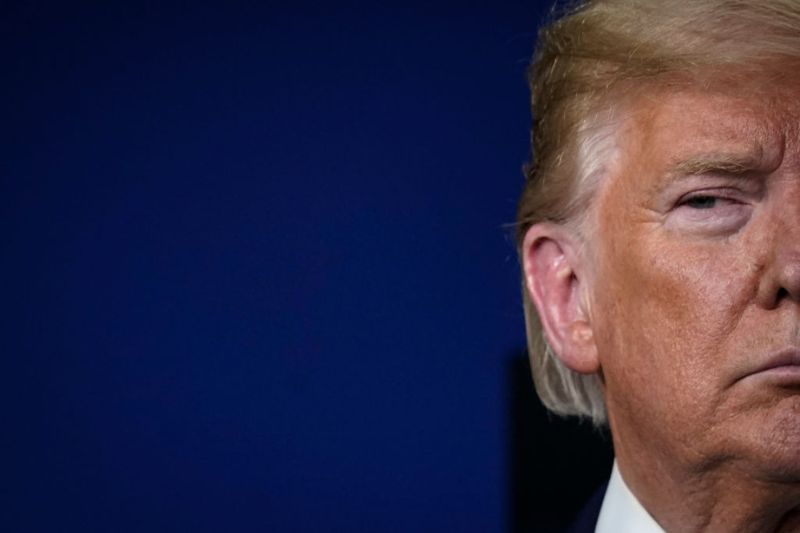Many who deplored the electoral victory of President Trump focused on the coarseness of his language, the apparent arbitrariness of his behaviour, and the irrationality of his policies. Such criticism, while perhaps justified, is also lazy. We should look beyond the surface and examine the principles underlying his performance and the connections between the seeming anarchy of his governance and the multitude of his actions and threats. These range from firing department heads and weakening civil service oversight to installing loyalists in key positions, declaring certain immigrant groups as unwanted and deporting them, and even threatening to seize Panama and Greenland. When we identify patterns in the apparent chaos, we may be able to anticipate the likely consequences of his policies and advocate for a better way of governing based on just principles.

Like many observers, I see Trump’s behaviour as fundamentally transactional. He does not believe ethical principles, consistency, or stable human relationships should shape his leadership. Instead, he operates on a framework of self-interest and power dynamics, guiding his relationships to partners and opponents both domestically and internationally. In this, despite his unpredictable rhetoric, he does not differ greatly from many other political leaders. The key difference is that while most will usually cloak their actions in appearances of principle and institutional continuity, Trump dispenses with such pretence. He is convinced that he alone knows what is best for the nation and that he can negotiate the necessary relationships to secure it.
His approach echoes the industrial barons of an earlier era (and perhaps the tech barons of today). These figures had an unshakable belief in their own ability, exercised total control over their enterprises, and were confident that their actions served the national good. They were also ruthless in making and breaking alliances with governments and other barons whose support they needed while – with their help –crushing weaker groups like unions and reformist politicians who stood in their way.
Despite deepening social divisions and economic inequality, this transactional approach to governance was successful in building wealth and providing material services like rail roads, oil supply and industrial goods. Though socially destructive it could in the short term increase economic wealth and national power.
Seen from this perspective, President Trump’s words and actions that at first sight seem arbitrary and even crazed, may form a coherent, if ethically odious, vision. He clearly believes that his vision for the United States is correct and is determined to ensure that he has the power to implement it. Having bent the Republican Party to his will, he has now set out to place such institutions of as review bodies, state authorities and courts and the military under his control by employing pliable heads and cutting financial support.
He has also maintained a transactional relationship with America’s wealthiest elites, whose financial and media backing he relies on, by appointing them to influential government positions and serving their interests. The mismatch between their human gifts and the roles they have been given may seem bizarre, but their appointment is strategic in strengthening his power.
In contrast, his dealings with minority and less wealthy groups of Americans, such as immigrants and LGBT+ groups, have been brutal. They reflect his dominant power and his self-interest in winning the favour of his supporters. His apparently irrational rhetoric is carefully directed to this end.
'A purely transactional vision of politics is both flawed and fundamentally unethical, and is likewise grounded in a false and unethical view of human life.'
President Trump’s relationships with other nations are also transactional. He has set out to weaken international institutions, such as United Nations bodies, which regulate the economic, political and judicial relationships between nations. He prefers direct and unmediated dealings with individual nations. The conduct of these relationships also reflects self-interest and differences in power relationships. Within a few days he squashed Colombian protest against the dumping of returned immigrants by threatening tariffs. His claim to Greenland over Denmark and to control the Panama Canal over Panama also reflects the difference of power. In mediating relationships between nations of equal power, like Russia, he welcomes transactions in which he can make a deal, even if they are at the cost of weaker nations.
How should we assess this transactional approach to national and international relationships? In the short term, there is no reason to think it will not be effective on its own terms. The United States may indeed become wealthier and more assertive, though also more unequal. And through control of the news media and its interpretation, discontent among the majority of the population could be redirected toward manufactured internal enemies.
But over the long term, however, a purely transactional vision of politics is both flawed and fundamentally unethical, and is likewise grounded in a false and unethical view of human life. It denies the equal dignity of all people, ignores the mutual interdependence that underpins society, and disregards the need for institutions that serve the common good. The idea that a single man, or a coalition of the wealthy, whose power is rooted in competitive success, will have the wisdom to govern unchecked for the benefit of all is inherently absurd. Both historical precedents and common sense suggest that such a system will eventually collapse under its own internal contradictions. In the meantime, however, it may do a great deal of harm.
The challenge, then, is to set our minds on how to repair the damage and on championing a better way. It is, after all, better to light a candle than to curse the darkness.
Andrew Hamilton is consulting editor of Eureka Street, and writer at Jesuit Social Services.
Main image: Donald Trump. (Photo by Drew Angerer/Getty Images)